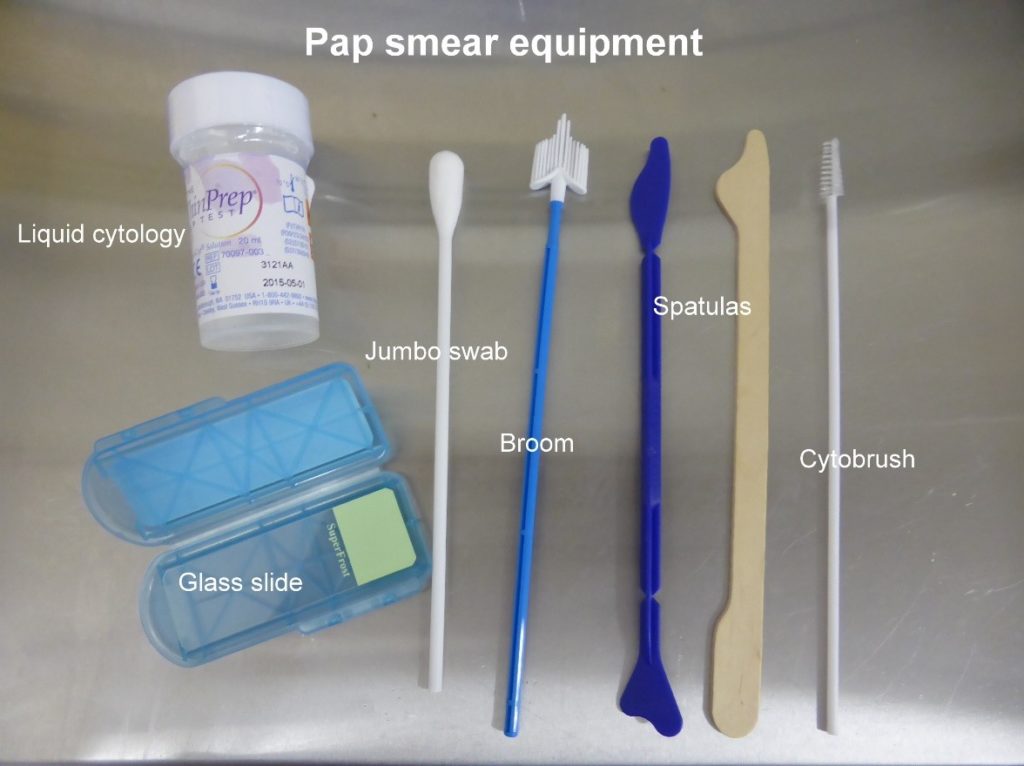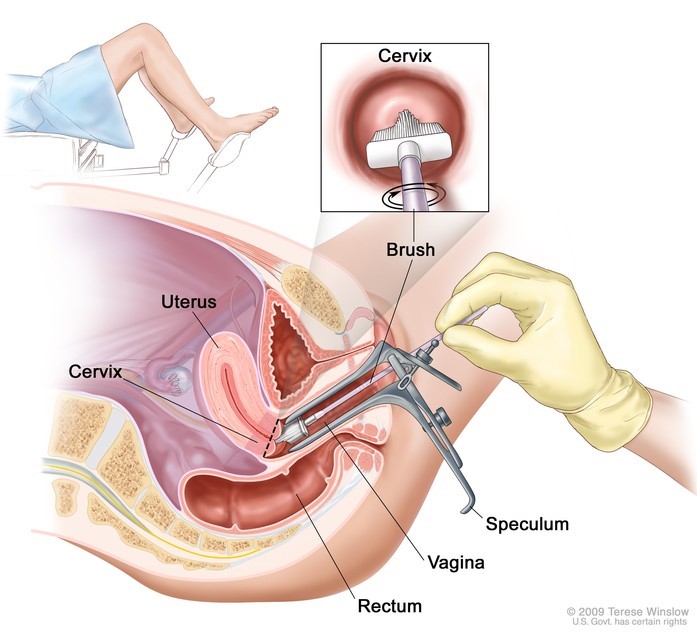Question?
What is a smear test?
Answer:
Cervical cancer screenings are an essential part of women’s routine health care. Cervical cancer is caused by human papilloma virus (HPV), which is passed during sex (American Cancer Society, 2018 a). Cervical cancer is also seen in women who smoke, have HIV or AIDS, poor nutrition and women who have not had a pap test. Prevention of cervical cancer, early detection and prompt treatment are necessary to protect women from cervical cancer. So, education and screening are essential part of the prevention and diagnosis of cervical cancer. Cervical cancer screening involves pap test and HPV testing. These are cytology-based screening tests.

Source: https://bitsandbumps.org/2015/07/17/bb-basics-the-gynaecological-examination/
Cervical cancer screening test pap smear (pap test) can be done in a clinic or a community health center. It is often done during pelvic examination. The pap test looks for cell changes on the cervix, if changes are not treated, these can turn into cancer. The pap test can also find non-cancerous lesions such as infections and inflammation (National Cancer Institute, 2014). HPV testing is used to look for presence of high risk HPV types in cervical cells. Cervical cancer is the easiest gynecological cancer to prevent with regular screening, follow-ups and human papilloma virus vaccinations.

Source: https://www.womenshealth.gov/a-z-topics/pap-test
According to Vandeweyer, and Tjalma (2017, para.1), “Cervical cancer screening in women between ages of 25 and 65 years of age with diagnostic cytology is estimated to reduce the incidence of cervical cancer by 36% and reduce annual cervical cancer mortalities by 40%”.
References
American Cancer Society. (2018 a). Cancer facts for women. retrieved from https://www.cancer.org/healthy/find-cancer-early/womens-health/cancer-facts-for-women.html
National Cancer Institute. (2014 b). Pap and HPV testing. Retrieved from https://www.cancer.gov/types/cervical/pap-hpv-testing-fact-sheet
Vandeweyer, k., and Tjalma, W. (2017). Cost effective analysis of primary HPV screening with dual stain cytology triage in cervical cancer screening program of Belgium. DOI: https://doi.org/10.1016/j.jval.2017.08.1021 Retrieved from https://www.researchgate.net/publication/320525743_Cost-Effectiveness_Analysis_Of_Primary_HPV_Screening_With_Dual-Stain_Cytology_Tria
Cite This Work
To export a reference to this article please select a referencing style below:
Related Content
All TagsContent relating to: "HPV"
Human papillomavirus (HPV) is one of the most common sexually transmitted infections. Certain genotypes of HPV have been associated with an increased risk of cervical cancers and other cancers such as anal, penile, oropharyngeal and vaginal
Related Articles


